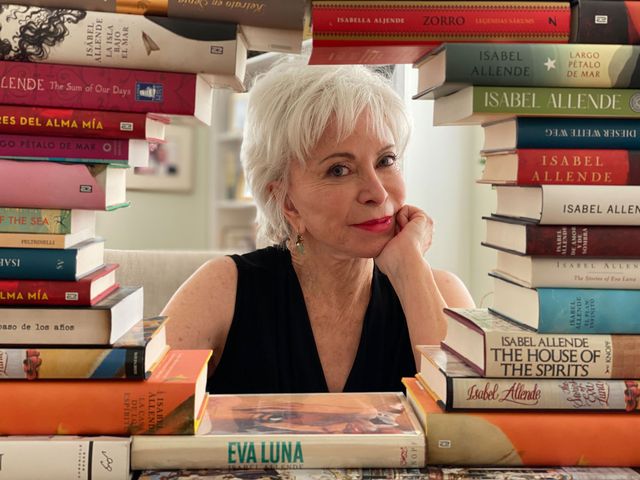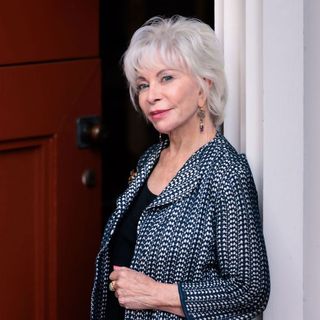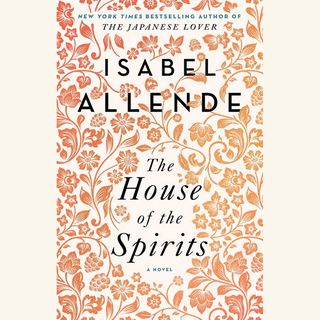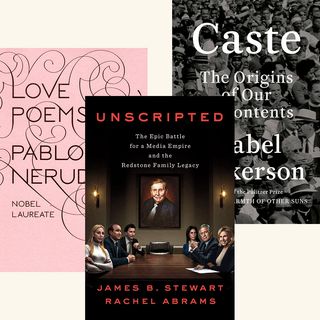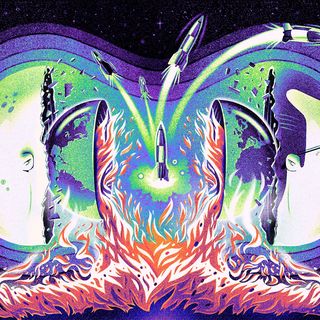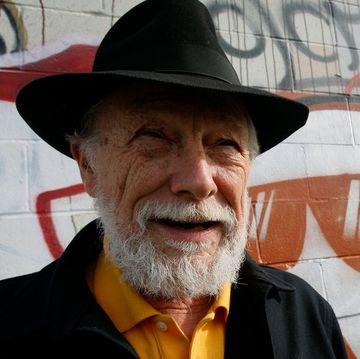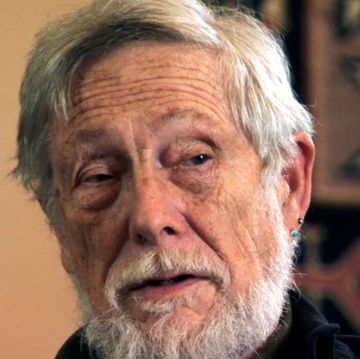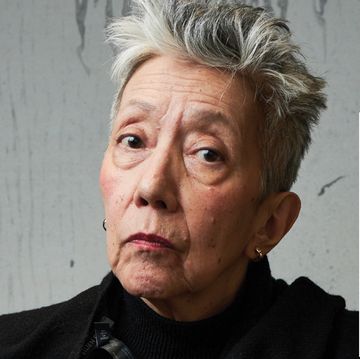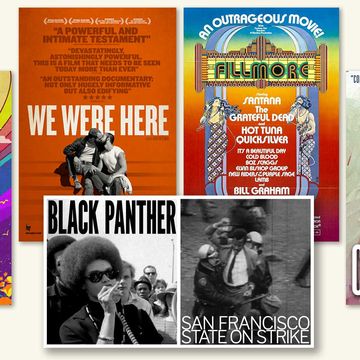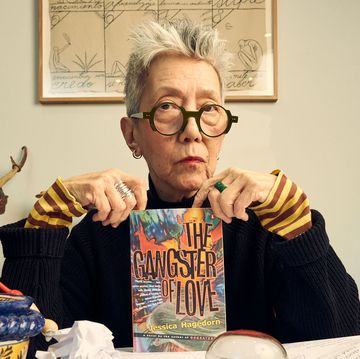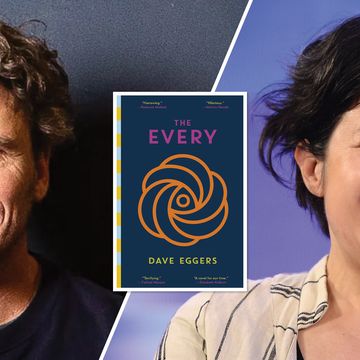I start all my books on January 8, and that’s a must,” Isabel Allende told Alta Journal. “And I write in the morning, every day, sometimes seven days a week.” That’s how Allende’s first book, The House of the Spirits, the March California Book Club selection, originally intended as a letter to her dying grandfather, was written over 40 years ago. This writing ritual has yielded 26 titles, a notable collection of work, many of them featuring events from both history and Allende’s vibrant life. Her books grapple with rage, feminism, grief, love, and family. And the author has no intention of slowing down. “I will retire by force when my memory and attention fail, or when my bones won’t hold me straight in a chair in front of my computer,” she told Alta books editor David L. Ulin.
Allende’s third novel, Eva Luna, published in 1987, is set not in her native Chile but in a fictional South American country. The book showcases Allende’s talent for depicting places on the cusp of revolution and creating rich narratives through characters. Young Eva is a talented storyteller, a gift that brings her close to South Americans of all classes and walks. She learns of—and eventually participates in—the burgeoning protest movement by trading stories with the people around her, among them merchants, sex workers, and rebels. Allende later continued this character’s narratives in The Stories of Eva Luna.
The House of the Spirits and Paula, Allende’s 1994 memoir, are two sides of the same coin. Both were fueled by grief and the impending threat of loss. Paula sticks closer to reality than The House of the Spirits does but doesn’t completely sacrifice the magical realism that Allende has mastered, as Allende forms a sacred communion with her dying, comatose family member. When her adult daughter fell ill, Allende wrote her an epic family history interspersed with real-time reflections on loss and death, which turned into Paula. Allende’s daughter passed before the book was published, and the Isabel Allende Foundation was founded to honor her memory.
Inés of My Soul—based on real players in Chilean history—imagines the remarkable yet untold life of a historical figure, the conquistadora Inés Suárez. Though born poor, Suárez embarks on a journey from Spain to South America, as it would come to be known, where she falls in love with conquistador Pedro de Valdivia and becomes embroiled in the colonization and war against Indigenous people in Chile. The 2006 novel contains all of the hallmarks of an Allende novel: a strong woman at its center, revolutionary history, a hint of magic, generation-spanning reach, and a love story.
Allende told the Guardian in 2021 that she does not write romance because she cannot take the male characters seriously. Still, her 2015 novel, The Japanese Lover, unfolds an unforgettable story of love. Steeped in the author’s fascination with history, The Japanese Lover introduces Alma, a young woman who moves from Poland to San Francisco at the beginning of World War II and starts a passionate affair with Ichimei, whose family works for Alma’s aunt and uncle. Even though the lovers are brutally separated by internment and discrimination, they reunite in secret for decades. Years later, Alma’s grandson and her caretaker begin to piece together the gifts and letters that preserve a record of Alma and Ichimei’s lifelong romance.
Allende’s most recent memoir—and her fifth nonfiction book—is the culmination of a lifetime dedicated to independence and women’s rights, by a woman who proclaimed feminist values long before it was mainstream to do so. The Soul of a Woman, published in 2020, is Allende’s manifesto for the ages and details her life as a journalist, a mother, a writer, a citizen, a thrice-married woman, and the creator of her foundation. The book is fearless in its transparency, especially when it comes to aging. “My old age is a precious gift,” Allende writes. “I am letting go…letting go. I should have started earlier.” Allende wrote the memoir four decades after The House of the Spirits, but it is not a conclusion or a farewell: by her own testament, Allende’s work is far from finished.
Join us on March 16 at 5 p.m., when Allende will appear in conversation with CBC host John Freeman to discuss The House of the Spirits. Please visit the Alta Clubhouse to discuss the book with your fellow California Book Club members. Register for the Zoom conversation here.
ENDURING INFLUENCE
Carolina De Robertis (The President and the Frog) pens a beautiful essay about Allende and The House of the Spirits. —Alta
WHY READ THIS
Alta books editor David L. Ulin recommends Allende’s The House of the Spirits, which is “an attempt to make legend from one’s story.” —Alta
THE LENS OF PLACE
Ulin writes about three new collections of poetry, from Courtney Faye Taylor, Vickie Vértiz, and B.H. Fairchild. —Alta
MARCH BOOKS
New releases by authors of the West that we’re excited about this month include Scott Timberg’s Boom Times for the End of the World, Debra Lee’s I Am Debra Lee, and Keenan Norris’s Lustre. —Alta
INDEPENDENT BESTSELLERS
Here are the California indie bookstore bestsellers for the week ending February 19. —Alta
CONTROVERSIAL SENSATION
Thomas Pynchon’s novel Gravity’s Rainbow turns 50 this year. —Wired
Alta’s California Book Club email newsletter is published weekly. Sign up for free and you also will receive four custom-designed bookplates.
Jessica Blough is an associate editor at Alta Journal. She is a graduate of Tufts University and former editor in chief of the Tufts Daily.
